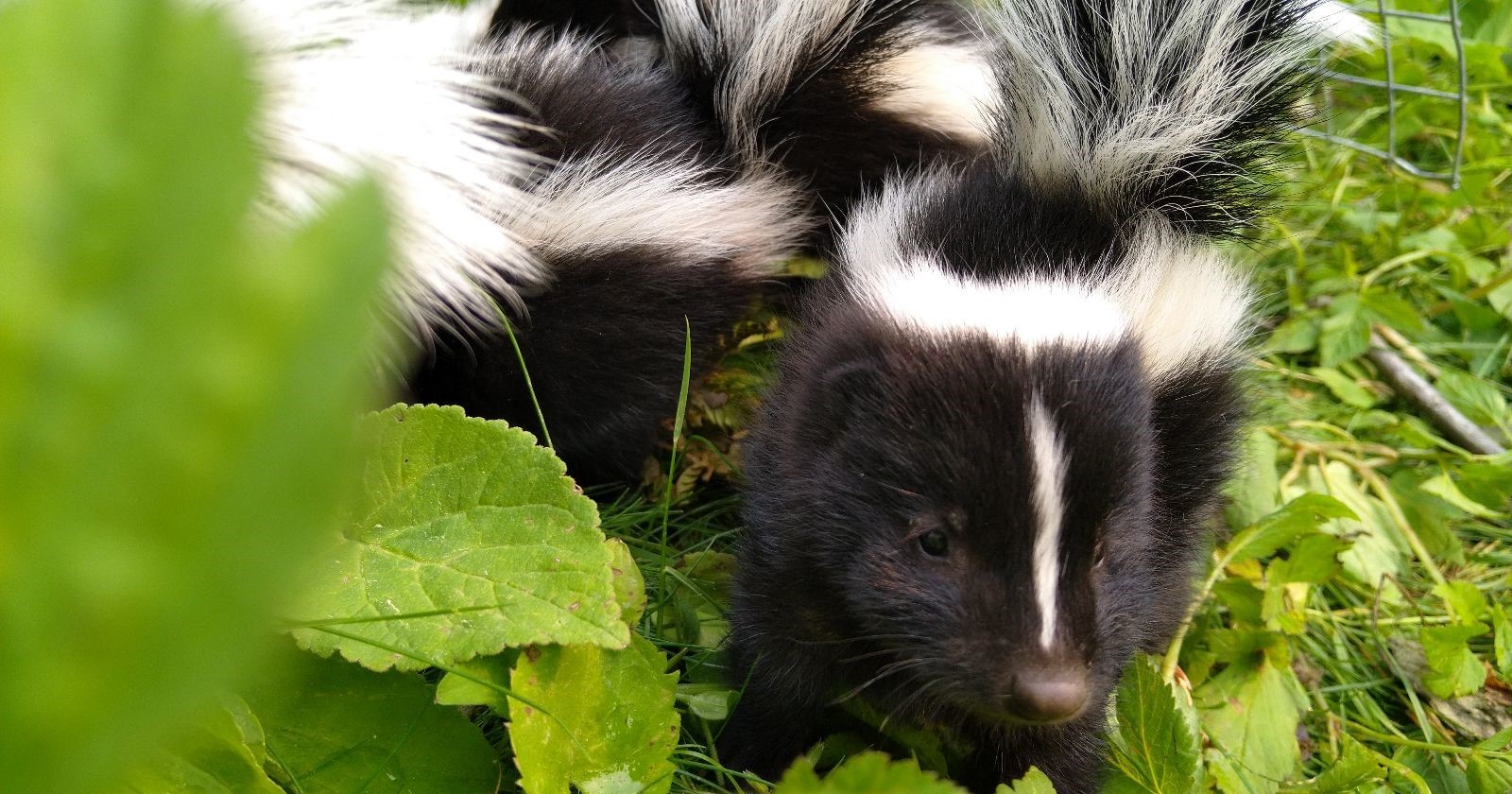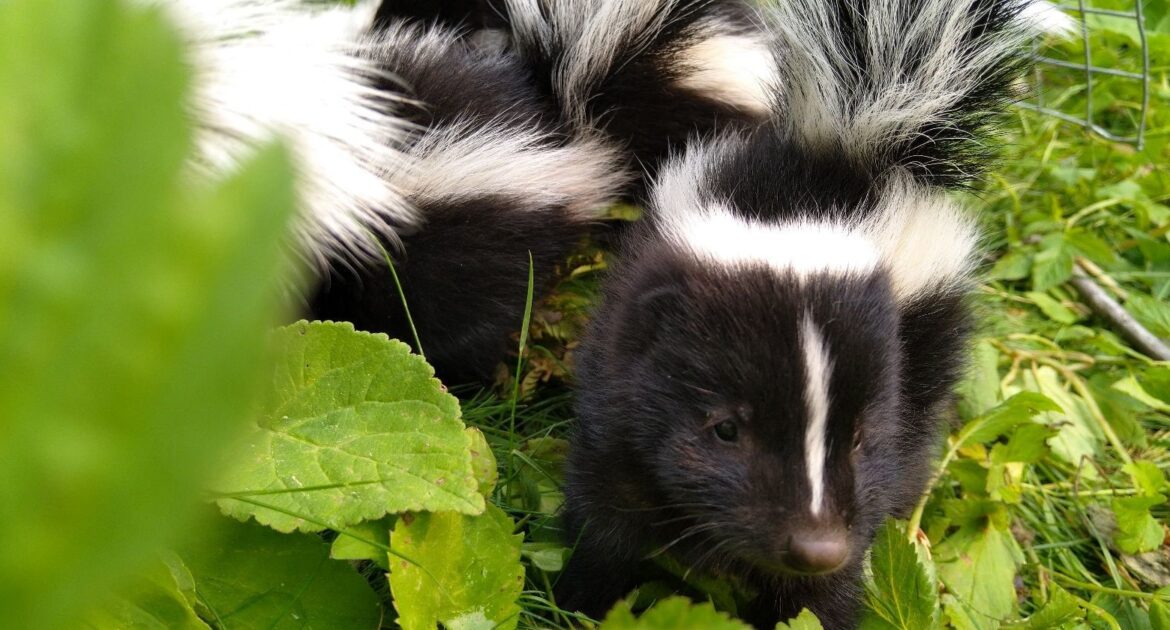Have you ever smelled something so foul that it made your eyes water and your nose burn? If you’ve encountered a skunk up close, you know exactly what we’re talking about.
But have you wondered why their spray is so powerful and long-lasting?
The answer lies in skunk spray science, a fascinating topic that shows how these black-and-white animals are equipped with a defence system unlike any other. It’s more than just a terrible smell; it’s a marvel of evolution designed to keep predators—and people—at bay.
Skunks spray as a last resort when they feel threatened. This potent defence spray is their way of saying, “Stay back!” The more you learn about skunk spray science, the better you can understand why it’s so effective, how it works, and what to do if it happens to land on you or your property.
These skunk odour facts are essential for anyone who shares their environment with these smelly yet unique creatures.
Why Do Skunks Spray?
Skunks are not aggressive animals. They’re shy by nature and would much rather avoid a confrontation. But when they feel cornered or threatened, they resort to their ultimate defence—spraying. This act is not random; it’s a carefully executed warning that takes effort and precision.
Here’s how the process usually unfolds:
- Warning Signs: Before spraying, skunks give fair warning. They’ll hiss, stomp their feet, and raise their tail as a signal to back off. If you see these signs, it’s best to give them space.
- Spraying as a Last Resort: A skunk will only spray if these alerts fail to scare off the threat. Their spray is so precious that they save it for moments when it’s truly needed.
- Control and Precision: Skunks can aim their spray with surprising accuracy, targeting threats from up to 10 feet away.
Understanding why skunks spray can help people avoid situations that escalate. It’s important to remain calm and carefully retreat if you encounter a skunk showing defensive behaviour. The goal is to give the skunk no reason to use its foul-smelling weapon.
What Makes Skunk Spray Smell So Strong?
The smell of skunk spray is so bad it’s almost legendary. But what exactly makes it so unforgettable? The secret lies in its chemical composition.
- Sulphur Compounds: Skunk spray contains thiols, which are sulphur-based chemicals responsible for its overpowering odour. These are the same compounds that make rotten eggs and garlic stink.
- Durability of the Odour: Thiols are incredibly potent and linger on surfaces for days—or even weeks—if not properly removed.
- Activation by Water: Another fascinating skunk odour fact is how thioacetates, another compound in skunk spray, react with water. When mixed with water, these compounds transform into thiols, making the smell even worse! This is why washing with plain water alone won’t work.
From a scientific standpoint, skunk spray is a brilliant but smelly mixture designed to ward off predators quickly and effectively. These chemical components stick to fur, clothing, and even outdoor surfaces, ensuring that the memory of the encounter lasts long enough to deter future threats.
How Skunk Spray Affects Humans and Animals
The most immediate impact of a skunk’s spray is on your senses. Even a small amount is enough to affect your nose, eyes, and skin. Both humans and animals can feel the effects, which include:
- Eye Irritation: Skunk spray can cause stinging and even temporary blindness if it gets into the eyes.
- Nausea and Headaches: The intense smell often leads to queasiness and migraines, making it hard to stay near the sprayed area.
- Skin Irritation: The oily texture of the spray can leave skin feeling raw and irritated, especially if not cleaned quickly.
For pets, getting sprayed by a skunk can be particularly distressing. Dogs and cats may paw at their faces or roll around in an attempt to get rid of the smell, which only worsens the problem. Acting fast with proper cleaning methods is essential for minimizing discomfort and removing odour.
How Long Does Skunk Odour Last?
One of the worst things about skunk spray is how long it lingers. The smell doesn’t fade easily because of its oily nature and chemical makeup. If left untreated, the odour can stick around for weeks, especially in porous materials like fabric or wood. This is why a quick response is critical after a skunk sprays.
Key factors that affect how long the smell lasts include:
- The type of surface the spray lands on (e.g., fur, clothing, or outdoor ground).
- Weather conditions, like high humidity, which can intensify the smell.
- Delayed cleaning, which allows the chemicals to settle in deeper.
How Professionals Handle Skunk Spray Removal
If you live in Toronto and find yourself dealing with skunk spray on your property or pets, it’s always best to call professionals like Skedaddle Humane Wildlife Control. Trying to handle the situation on your own often leads to incomplete removal and added stress.
At Skedaddle, our one-way doors provide a humane solution for keeping skunks out of your property. These expertly designed doors allow skunks to leave but prevent them from getting back in, making your home skunk-free without harming the animal. Professionals have the expertise to identify where skunks are entering and secure the area effectively.
Quick Tips for Removing Skunk Odour
Knowing what works—and what doesn’t—can save you a lot of trouble when dealing with skunk spray. Here are some proven methods for odour removal:
- Hydrogen Peroxide Solution: Mix one litre of hydrogen peroxide, a quarter cup of baking soda, and one teaspoon of dish soap. Use this mixture to clean fur, clothing, or other washable surfaces. Be careful to avoid your eyes.
- Vinegar: Use a mixture of vinegar and water to neutralize odours on hard surfaces (but avoid this on delicate fabrics).
- Enzyme Cleaners: These products are especially effective at breaking down the chemical compounds in skunk spray. You can find them in most pet supply stores.
- Avoid Tomato Juice: A common myth is that tomato juice can neutralize skunk smell, but this often just masks the odour rather than removing it.
Keep in mind that it’s always safer and more effective to contact professionals if the smell has spread or an area requires thorough cleaning.
Skunks in Your Neighbourhood
Skunks are common throughout urban and suburban areas in Canada, including Toronto. They adapt well to these environments, drawn in by food sources like garbage bins, pet food, and gardens. However, as adaptable as they are, skunks are still wild animals that can carry diseases like rabies. This makes professional wildlife control not just a convenience but a necessity.
By taking preventive steps like securing trash cans, removing pet food left outdoors, and sealing potential entry points, you can lower the chances of a skunk making itself at home on your property.
A Fresh Start with Skedaddle Humane Wildlife Control
The science of skunk spray proves that it’s much more than just a smell—it’s a fascinating and highly effective survival tool. While skunks rarely mean harm, their spray can disrupt your day and linger for weeks if not addressed properly. Understanding why skunks spray and how to deal with the aftermath can make a big difference.
At Skedaddle Humane Wildlife Control in Toronto, we’re here to help you handle skunk issues with ease and professionalism. If you’re dealing with a skunk problem or need assistance cleaning up after an encounter, trust us to provide effective, humane solutions. From our innovative one-way doors to thorough cleaning and prevention strategies, we’ve got you covered.
Don’t wait for the smell to wear off—request an estimate from us today and reclaim your space. Call now to keep your property skunk-free and smelling fresh. We’re here to help!




